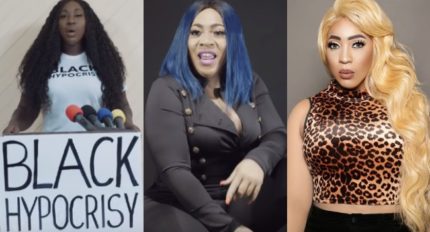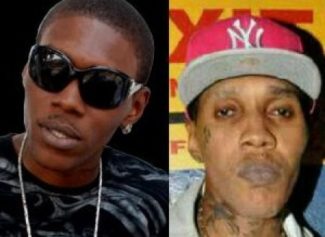Incarcerated Jamaican artist Vybz Kartel enjoys a new international album release this week: “Voice Of The Jamaican Ghetto,” which is also the title of his book released last year. Now of course if you’re an avid fan of dancehall music this may not be a major deal to you, as the album does not feature new music. Like most dancehall albums, Kartel’s new album is a compilation of songs that can date back as far as four years ago. But what is interesting is the narrative the album attempts to present. If this is the first material you’ve heard from the Gaza Worldboss, you’d think he’s a forward-thinking, socially-conscious artist, fighting for the rights of ghetto people 100 percent of the time. Or as reviewed by urbanislandz.com:
“Vybz Kartel’s latest CD compilation, ‘Voice of the Jamaican Ghetto’ will serve to curtail all efforts by the powers-that-be to dismiss the genre as merely a perpetuator of violence, as this shows that the genre at its best is simply an artistic expression of life in the ghettos of Jamaica.”
As Kartel’s co-author Michael Dawson explained about their book that the CD is based on:
“Jamaican ghetto life is not a pretty story, so I don’t understand why certain people want Dancehall artistes to sing about niceties. Doing that would be hypocritical and I think we should leave hypocrisy to the politicians. This CD is straight reality, as real as you can get about Jamaica’s true roots and its modern day culture.”
Now this all sounds great, plus the CD is narrated by Jamaican Observer writer Louis Moyston, whose interludes between songs cover some pretty deep topics. But of course it becomes laughable when you take into consideration that Kartel is one of the most vulgar dancehall artists of all time, known for his overtly sexual songs.
Besides that, he helped to popularize skin bleaching in Jamaica, and is currently on trial for murder. The album’s interludes actually become absurd when Moyston compares Kartel to black activists, stating that “he’s resurrecting the work of W. E. B. Du Bois and Booker T. Washington.” Now, Kartel may be a disruptive figure in Jamaican culture, but he is by no means a social activist.
I’ll be the first to say that I am a fan of Kartel’s music, but purely as a form of entertainment. And while “The Voice Of The Jamaican Ghetto” attempts to show the dichotomy between his vulgar and conscious sides, it doesn’t work because of the image he conjures.
When artists of the ’90s like Beenie Man and Bounty Killa used explicit content to raise consciousness, it was believable. For Kartel, it’s not.
Maybe this was an attempt to paint him in a more positive light while he awaits his release from prison, as his trial dates keep getting delayed. Either way, I personally would rather the entire story be told – good and bad together – rather than him trying to be something that he’s not.


